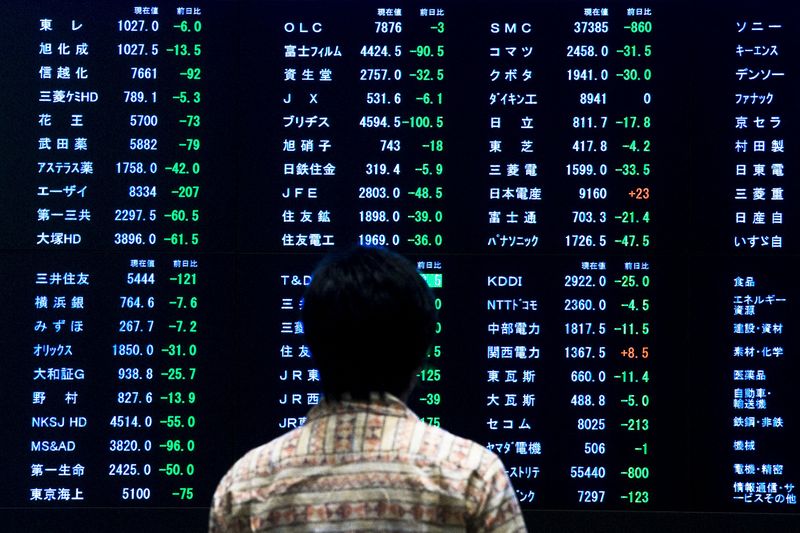By Marc Jones
LONDON (Reuters) - The dollar was near a three-week high on Thursday and world stock markets had a delicate feel, as the implication of U.S. jobs data later for a possible Fed rate hike added to Europe's uncertainty over Greece.
Chinese shares also remained in focus as they suffered another heavy tumble overnight to take their loses over the last six weeks to 25 percent, countering otherwise solid performances in the rest of Asia's main centres.
Europe's main bourses in London (FTSE), Frankfurt (GDAXI) and Paris (FCHI) and Milan (FTMIB) opened largely flat having rallied on Wednesday but the mood remained skittish after hopes of a last minute aid deal between Athens and the euro zone evaporated.
A defiant Prime Minister Alexis Tsipras urged Greeks on Wednesday to reject an international bailout deal, wrecking any prospect of repairing broken relations with European Union partners before a referendum on Sunday that may decide Greece's future in Europe.
It ensured the region's bond markets started the day in the red and the euro slipped again too with the added factor that a strong set of U.S. jobs figures later will increase expectations of a Federal Reserve hike in September or a least this year.
Economists polled by Reuters expect the U.S. economy to have added 232,000 jobs in June after May's unexpected 280,000 surge. But strong private hiring figures on Wednesday left economists considering another bumper reading.
"You can see there is edginess in the market," said Kit Juckes, at Societe Generale (PARIS:SOGN) in London.
"If you get something strong (in payrolls data) that really makes it look like the Fed are going to hike, with all the Greek uncertainty in the background too, you could really get some risk aversion breaking out."
Less than 24 hours after he wrote a conciliatory letter to creditors asking for a new bailout that would accept many of their terms, Greece's prime minister Tsipras abruptly switched back into combative mode in a television address.
Greece was being "blackmailed", he said, quashing talk that he might delay the vote, call it off or urge Greeks to vote "Yes".
Markets were relieved on Wednesday that the European Central Bank opted against cutting back the emergency funding that it is sanctioning for Greek banks and on Thursday it announced it had broadened the list of bonds eligible for its QE programme.
SWEDEN SURPRISES, OIL STEADIES
Outside the euro zone there was also central bank action.
In a surprise move, Sweden's Riksbank cut its main interest rate deeper into negative territory and upped the size of its bond buying programme. It was in response to low inflation but also a bid to prevent a jump in the crown as Greek nerves drive investors out the euro.
The crown weakened against the euro (EURSEK=) after the decision and traded at 9.34 compared to 9.26 just before the announcement. Meanwhile The euro was last at $1.1050 against the dollar, with the dollar also nudging back towards 124 yen
MSCI's broadest index of Asia-Pacific shares outside Japan (MIAPJ0000PUS) ended little changed after more volatile regional trade. Tokyo's Nikkei (N225) climbed 1.1 percent thanks to a weaker yen, but it was the 4 percent slump in Chinese stocks that grabbed the attention.
"We are shaping up for a bumpy ride in the summer as the Greek crisis means a risk-on, risk-off approach is seen in the markets," said Tai Hui, chief markets strategist at JP Morgan Asset Management in Hong Kong. "Investors are likely going to move towards a more conservative positioning in their portfolios."
In commodities, U.S. crude steadied somewhat after shedding 4 percent overnight on data showing stockpiles in the United States rose for the first time in more than two months. [O/R]
U.S. crude

"I think the drop in oil was somewhat underreported yesterday" said Society Generale's Juckes. "I don't think you can really be comfortable with any commodity currency at the moment."